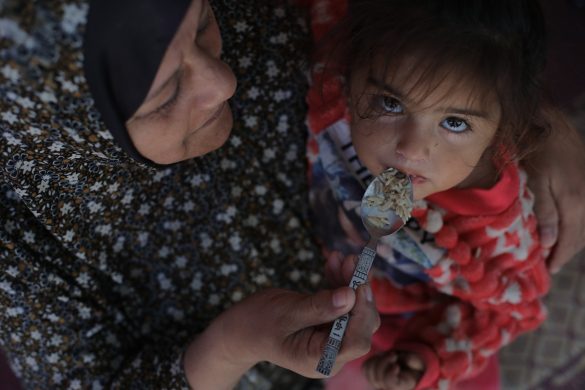JERUSALEM, April 18, 2015 (World Bank): A new World Bank report estimates that the Palestinian Authority (PA) is losing US$285 million (1,87 milliarder kroner, red.) in revenues annually under the current economic arrangements with the Government of Israel. The report states that these revenues can significantly ease the Authority’s fiscal stress.
“If revenue losses are mitigated, this can reduce the 2016 fiscal deficit to below US$1 billion, and narrow the expected financing gap by more than 50 percent” said Steen Lau Jorgensen, World Bank Country Director for West Bank and Gaza.
The revenue sharing arrangements, outlined by the Paris Protocol, through which the Government of Israel collects VAT, import taxes and other revenues on behalf of the Palestinian Authority, and shares them on a monthly basis, have not been systematically implemented. These so-called clearance revenues constitute over two thirds of public revenues. The majority of the estimated fiscal loss results from tax leakages on bilateral trade with Israel and undervaluation of Palestinian imports from third countries.
Beløbet er nok meget større
The annual amount of US$285 million loss excludes revenues collected by the Government of Israel in Area C (61 percent of the West Bank under Israeli control) not quantified due to data constraints. The report states that reviving the Israeli-Palestinian Joint Economic Committee, originally set to monitor implementation of the Paris Protocol and resolve outstanding issues, could significantly enhance economic and fiscal cooperation between the parties. This includes reviewing the high handling fee charged by Israel which currently finances close to a third of the Israeli customs and VAT department’s total budget.
In addition, US$669 million in accumulated revenues are pending with the Government of Israel. The amount includes pension contributions from Palestinians working in Israel and their employers, expected to be transferred to a dedicated fund that is yet to be established by the PA. It also covers deductions from the salaries of these workers that should be transferred to cover their health services and social benefits.
”Israel har taget første skridt for at løse problemet”
Recently, the Government of Israel agreed to transfer US$128 million (840 millioner kroner, red.) to offset some of the losses accumulated over the years. The report commends this first step in an enhanced dialogue. The report also notes that more needs to be done to overcome tax losses and stimulate growth in an economy that is not growing enough to raise living standards or reduce high unemployment.
While the economy bounced back from the 2014 recession, the 3.5 percent growth in 2015 was barely enough to keep up with population growth. The Gaza economy is not expected to rebound to pre-war levels until 2018. Slower than expected aid continues to hamper Gaza’s recovery, as only 40 percent of total pledges made at the Cairo Conference has so far been disbursed.
“At this pace, pledges are estimated to be fully disbursed only 5 years after the end of the war. One can understand the exhausted population when 20 months after the war, only 9 percent of totally damaged houses and 45 percent of partially damaged houses have been repaired. Over 14,800 families continue to be displaced. For these people in Gaza, there is no escape,” said Jorgensen.
Download rapporten Economic monitoring report to the ad hoc liaison committee: main report















